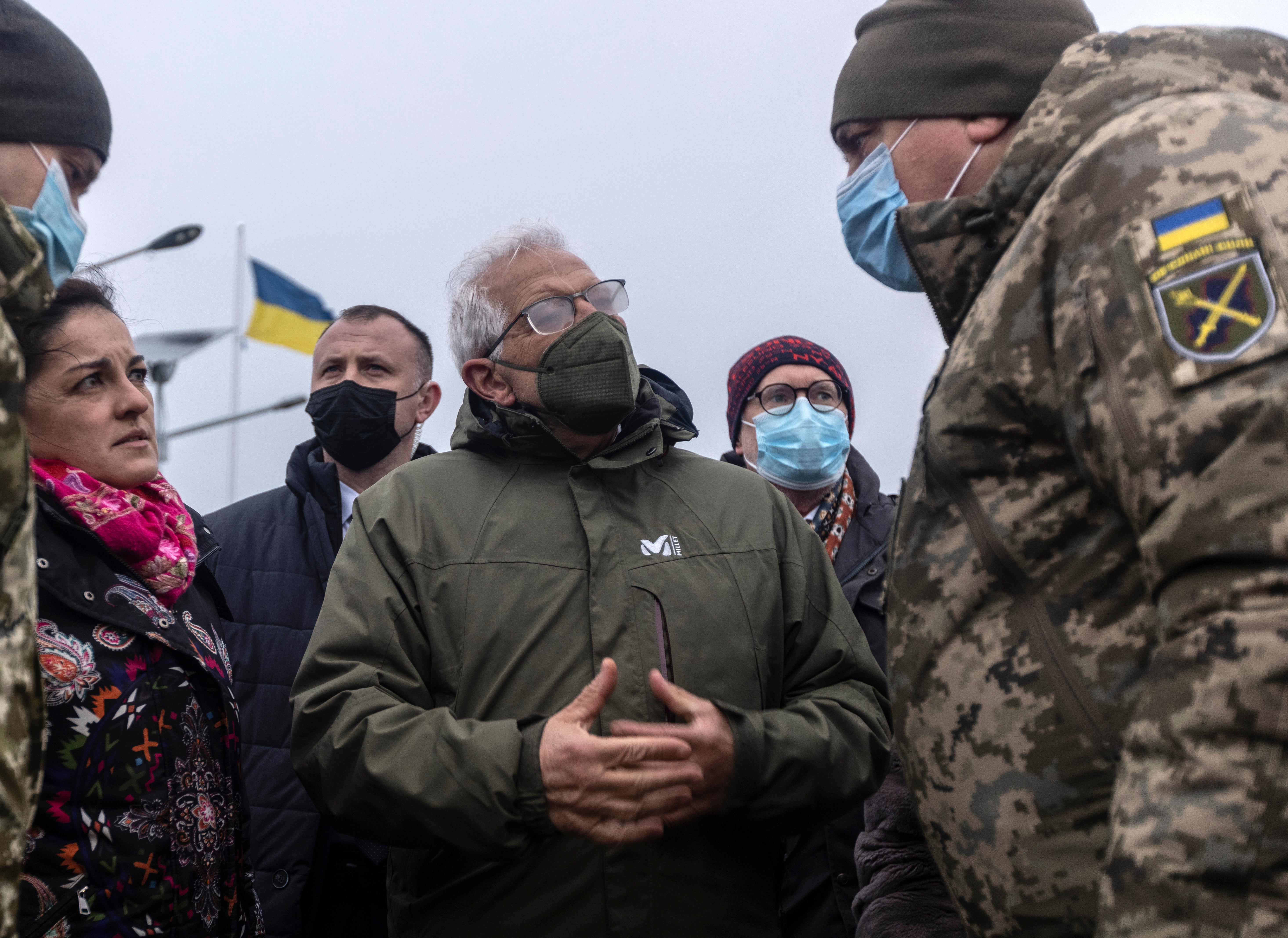EU wants place at table to discuss Ukraine, Russia crisis
The European Union’s foreign policy chief is insisting that the 27-nation bloc must have a bigger role to play alongside Washington and Moscow to defuse the West’s standoff with Russia over Ukraine

Your support helps us to tell the story
From reproductive rights to climate change to Big Tech, The Independent is on the ground when the story is developing. Whether it's investigating the financials of Elon Musk's pro-Trump PAC or producing our latest documentary, 'The A Word', which shines a light on the American women fighting for reproductive rights, we know how important it is to parse out the facts from the messaging.
At such a critical moment in US history, we need reporters on the ground. Your donation allows us to keep sending journalists to speak to both sides of the story.
The Independent is trusted by Americans across the entire political spectrum. And unlike many other quality news outlets, we choose not to lock Americans out of our reporting and analysis with paywalls. We believe quality journalism should be available to everyone, paid for by those who can afford it.
Your support makes all the difference.The European Union's foreign policy chief insisted on Wednesday that the 27-nation bloc must have a bigger role to play alongside Washington and Moscow to defuse the West's standoff with Russia over Ukraine
In the diplomatic flurry surrounding the Russian military buildup on Ukraine's border the EU has largely been a bystander. This highlights a deeper frustration in Brussels: even though the EU is a massive global economic powerhouse, its strategic geopolitical footprint remains disproportionately small.
“There are not two actors alone. It’s not just the US and Russia," said Josep Borrell during a visit to Ukraine on Wednesday. "If you want to talk about security in Europe, the Europeans have to be part of the table.”
So far, the plea has largely fallen on deaf ears.
U.S. President Joe Biden and his Russian counterpart Vladimir Putin have spoken twice over the past month, before two days of talks between senior U.S. and Russian officials starting Sunday in Geneva. Those talks will be followed by a meeting of the Russia-NATO Council on Jan. 12 and negotiations at the Organization for Security and Cooperation in Europe in Vienna on Jan. 13.
And on Friday, NATO's 30 foreign ministers will already set the scene for those encounters. The EU is involved in none of them.
Borrell stressed that this had to change. “If Russia is really willing to talk about the security in Europe, then Europeans have to be part of it. Not the first day," he acknowledged, "But is that is not going to last just one day or one week.”
He said EU foreign ministers would assess next week in Brest, France, how to get the EU's foot in the door.
“We are going to discuss the way in which we are going to have our say in these talks through coordination with the US and possibly with the Russians," Borrell said. "Like it or not, they will have to talk with us. Be sure of that.”
To show the EU's commitment to Kyiv, Borrell visited Ukrainian soldiers at the Stanitsa Luganskaya crossing between Ukraine and the territory controlled by pro-Russian militants in the Luhansk region.
Since the Crimean Peninsula's annexation by Russia and the Kremlin's backing of a separatist rebellion in Ukraine’s east, the fighting has killed over 14,000 people and devastated the country’s industrial heartland, known as the Donbas.
For years now, the EU has championed the principles of diplomacy's so-called soft power of economic and non-military aid, since it lacked the political wherewithal to build up a powerful defense and security part in its common project. So far, it has yet to emerge as an essential player, even on its own continent.
Since the 2014 invasion of Crimea, European diplomacy has been spearheaded by the so-called Normandy format, bringing together Ukraine, Russia, France and Germany. The Minsk agreements that came out of it remain one of the best avenues for a fundamental solution.
French Foreign Minister Jean-Yves Le Drian said Wednesday that France's “efforts alongside Germany to achieve that remain total and will continue in the coming days and weeks.”